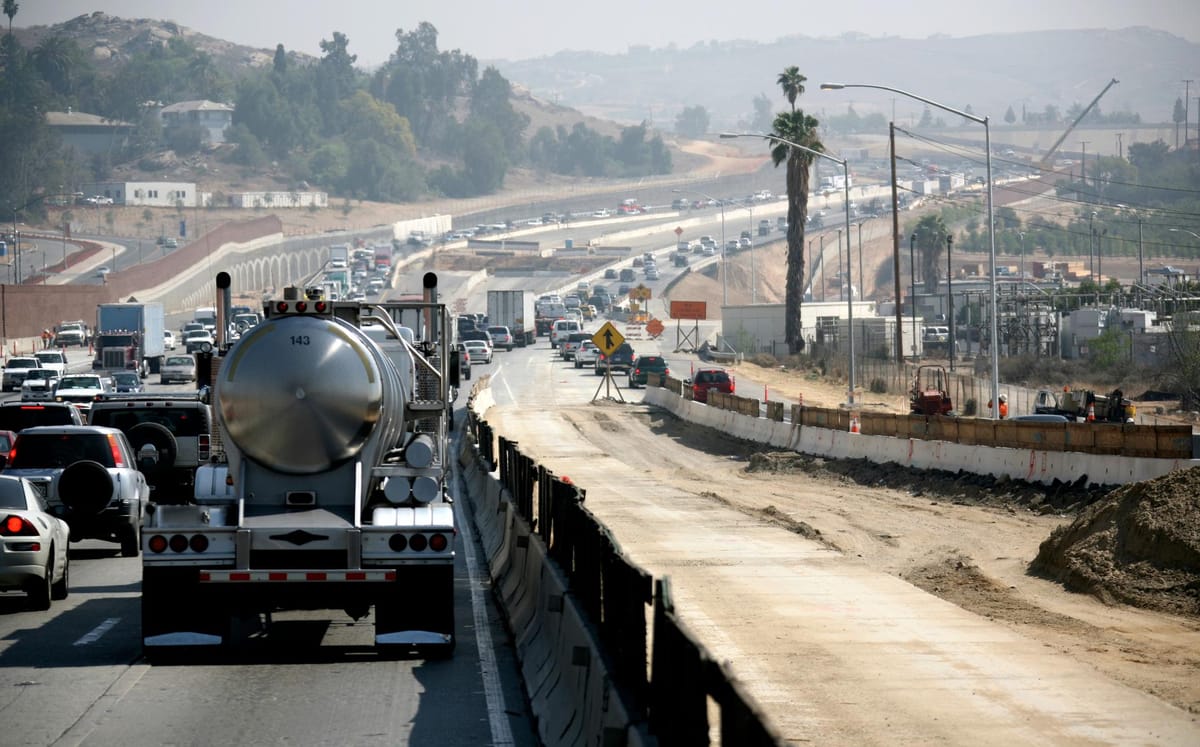'We can’t afford to do what’s being asked'
Fleet execs push back against EPA's emissions rules

Insiders: Fleet executives are pushing back against the EPA’s Phase 3 emissions reduction rule, calling it too costly and impractical. Plus, is the legalization of marijuana making it harder to find qualified drivers? Fleet managers say yes. - Bianca Prieto, editor
Today's Lineup
🔷 Fatigued driver, fake HOS to blame in fatal crash.
🔷 Amazon contract drivers are getting a raise.
🔷 The spot market looks brighter for 2025.
🔷 Wabash hit with nearly half-billion-dollar verdict.
🔷 How can we show driver appreciation this week?
-written by Shefali Kapadia

⬇️ $3.526 per gallon
AVG. COST OF DIESEL IN U.S. AS OF 09/16, DOWN 0.029¢
Source: U.S. Energy Information Administration


Trucking emissions rule ‘simply isn’t going to work’
The Environmental Protection Agency’s Phase 3 emissions reduction rule isn’t too popular among the trucking community.
Fleet executives shared a laundry list of problems with the rule, which calls for reduced emissions from heavy-duty vehicles starting with model year 2027. Trucking leaders said the timeline is too soon, there’s not enough charging infrastructure, trucks would be heavier and, most critically, it’s too expensive.
As Kriska Transportation Group CEO Mark Seymour put it: “It’s not a matter of people not wanting to do the right thing, it’s we can’t afford to do what’s being asked.”
Why this matters: The private and public sector agree that steps need to be taken to lower trucking emissions. The question is how exactly to do that, and the industry finds the EPA’s rule impractical.
Get more details from Trucking Dive.

- DRIVER FATIGUE: Fatal crash involved fake HOS, NTSB says
- PAY BUMP: Amazon raises contract driver pay to $22/hour
- GRAND THEFT: Official allegedly siphoned 16K gallons of diesel
- BRIGHT SPOT: Rates in spot market to rise 7% in 2025

Wabash slapped with $462M nuclear verdict
Trailer manufacturer Wabash is facing a hefty financial penalty after a jury found the company liable for designing a faulty rear underguard, which contributed to a fatal crash that killed two people. The court has ordered Wabash to pay $462 million in damages. Wabash quickly issued a statement disputing the jury's decision and filed with the Securities and Exchange Commission.
Why this matters: Between Wabash and Werner’s recent cases, multi-million-dollar verdicts seem to be the new norm for the trucking industry, setting a precedent for future court cases to come. (Land Line Media)
Small carriers rule the industry
Trucking has been, and continues to be, a small business industry, according to the American Trucking Associations’ annual trends report. More than 95% of carriers operate 10 or fewer trucks, and 99.6% operate less than 100 trucks.
Why this matters: While big fleets often make headlines, smaller companies constitute the vast majority of the trucking sector – a fact regulators must take into account when considering rules that affect the entire industry. (American Trucking Associations)
🎉A round of applause for drivers
It’s Truck Driver Appreciation Week. How can fleets best express their gratitude for the drivers that keep the wheels turning? It’s not about gifting company swag like free cups or T-shirts. What drivers really want is to feel appreciated and understand that you know their worth. A pay raise wouldn’t hurt, either.
Why this matters: The way fleets approach this week can speak volumes about company culture and could be the make or break in retaining drivers. (CCJ Digital)

If you enjoy The Inside Lane newsletter, consider sharing it with a colleague. (Copy the URL here).
I'd love to hear from you. Submit your news, photos or just say hi by emailing me. Be safe out there!
Not yet a subscriber? Join here.





Comments ()